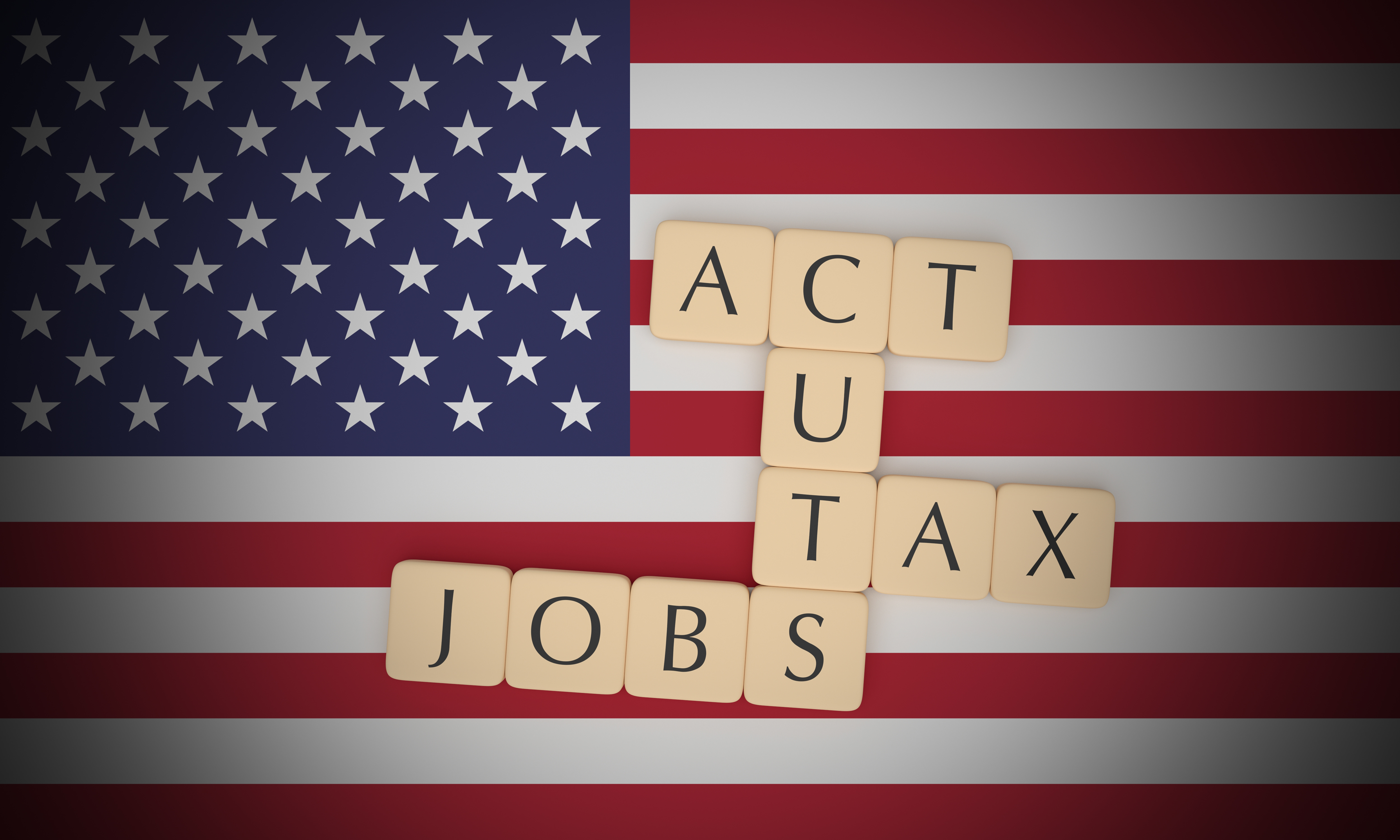
The new tax law, the Tax Cuts and Jobs Act of 2017 (TCJA), despised by a great majority of the public and leading nonprofits, is now law. Nonprofits should be aware of these provisions and how they may impact their fundraising and operations. Part 1, focused on fundraising, is available here.
Part 2 – Operations
The following provisions in the Act impact 501(c)(3) organizations. While most of the provisions on the list will not directly affect the vast majority of charities, they may be a harbinger of Congress’ intent to find new ways to tax charities and other tax-exempt organizations. Unless otherwise stated, these changes start in 2018.
Change to unrelated business income tax (UBIT) calculations
Organizations with multiple unrelated business activities may no longer offset income from one line of activity with losses from another line of activity. For example, if a charity earns income from two unrelated business activities – (1) sale of advertising in its publications and (2) operation of a parking lot – and has $10,000 in profits from the advertising but $2,000 in losses from the parking, it can no longer apply the $2,000 in losses against the $10,000 in profits to determine its UBTI (which is something it could do prior to 2018). Any losses incurred from one unrelated business activity may be carried forward to future years indefinitely (carrybacks have been eliminated) but can only be used to offset income earned from the same activity.
With the change to the corporate tax rates, the unrelated business taxable income (UBTI) tax rate was also changed to 21 percent for UBTI over the $1,000 threshold.
Application of UBIT on commuting/parking and other fringe benefits to employees
Organizations that provide their employees with (1) qualified transportation fringe benefits that are not included in their employees’ taxable income, including transit passes, van pooling, and qualified bicycle commuting reimbursements; or (2) parking reimbursements must now include the value of such benefits as unrelated business taxable income subject to UBIT. Parking reimbursements, in this context, includes any expenses paid or incurred by the organization for a parking facility used by employees on or near the organization’s premises. To avoid the UBIT liability, an employer organization can either provide the benefits as taxable items to the employees or discontinue providing the benefits. The provisions described in this paragraph do not apply to the extent the amount paid or incurred is directly connected with an unrelated trade or business which is regularly carried on by the organization (but see below). See IRS Publication 15-B (2017), Employer’s Tax Guide to Fringe Benefits regarding descriptions of fringe benefits, but note that the Publication has yet to be updated with changes made by the TCJA .
[UPDATE (December 24, 2019): The nonsensical and unpopular tax on qualified transportation fringe benefits was repealed on December 20, 2019 retroactive to 2017.]
Limitations on Entertainment-Related Deductions (applicable to calculations of UBIT)
Organizations may no longer take deductions for amounts paid or incurred for:
- an activity generally considered to be entertainment, amusement or recreation (even if directly related to the active conduct of the organization’s trade or business);
- membership dues for any club organized for business, pleasure, recreation or other social purposes;
- a de minimis fringe that is primarily personal in nature and involving property or services that are not directly related to the taxpayer’s trade or business;
- a facility or portion thereof used in connection with any of the above items; and
- a qualified transportation fringe, including costs of operating a facility used for qualified parking.
Excise tax on compensation of more than $1 million
Organizations will be subject to a new 21 percent excise tax on annual compensation to any of their five most highly compensated employees in excess of $1 million. Compensation for medical services provided by doctors, nurses, and veterinarians is excluded from the tax. But compensation from related parties is included. The new excise tax applies separately to both:
- Renumeration (wages for federal income tax purposes, but not including designated Roth contributions) other than excess parachute payments; and
- Excess parachute payments (separation pay, generally, with a present value that equals or exceeds three times the employee’s base amount).
Relatively few organizations will be subject to the excise tax, as fewer than 3,000 of the more than 14 million tax-exempt organization employees receive pay of this magnitude, and 501(c)(3) organizations are subject to various laws prohibiting excessive compensation. See The Impact of the Tax Cuts and Jobs Act on Nonprofit Salaries (Nonprofit Quarterly).
Excise tax on big private colleges and universities
Private colleges and universities will be subject to a new 1.4 percent excise tax on their net investment income if:
- it had at least 500 tuition-paying students during the preceding taxable year;
- more than 50 percent of its tuition-paying students are located in the United States; and
- the aggregate fair market value of its assets, as of the end of the preceding taxable year, not used directly in carrying out the institution’s exempt purpose is at least $500,000 per student.
State colleges and universities are excluded from this new tax, which is expected to impact only about 30 colleges and universities. See Eluding the Endowment Tax (Inside Higher Ed)
Repeal of advance refunding bonds
Tax-exempt advance refunding bonds, generally a form of refinancing used by government issuers and 501(c)(3) borrowers, have effectively been eliminated because the TCJA makes the interest on such bonds taxable. Advance refunding had been a common practice used by issuers to refinance bonds beyond 90 days from their call date to take advantage of a better interest rate. See Tax Act Could Pose Challenge for Municipal Bond Market (Insurance Journal).
Additional Resources
2018 Tax Law Checklist: New Federal Tax Law – Now What for Nonprofit Board and Staff Members? – National Council of Nonprofits